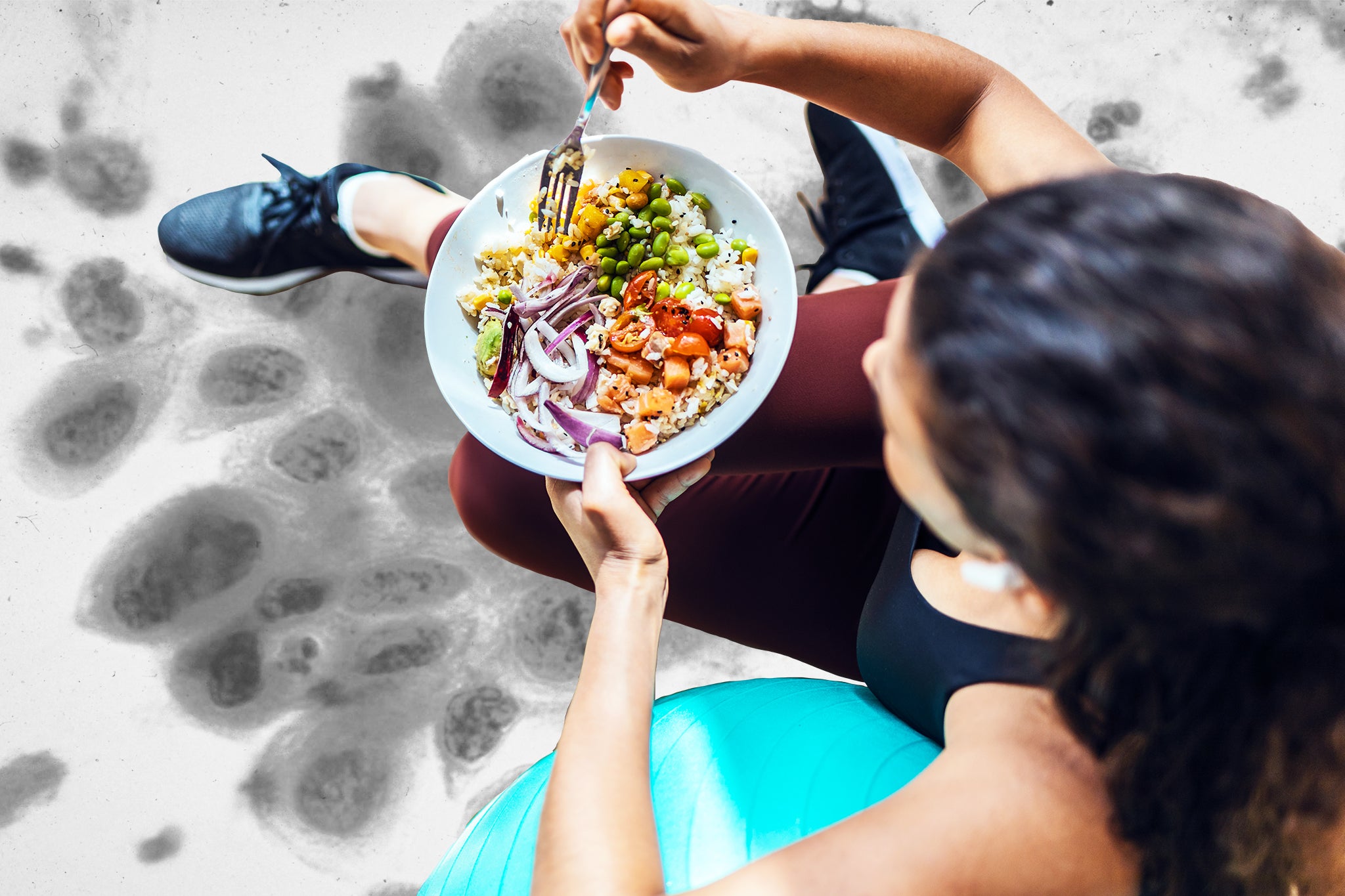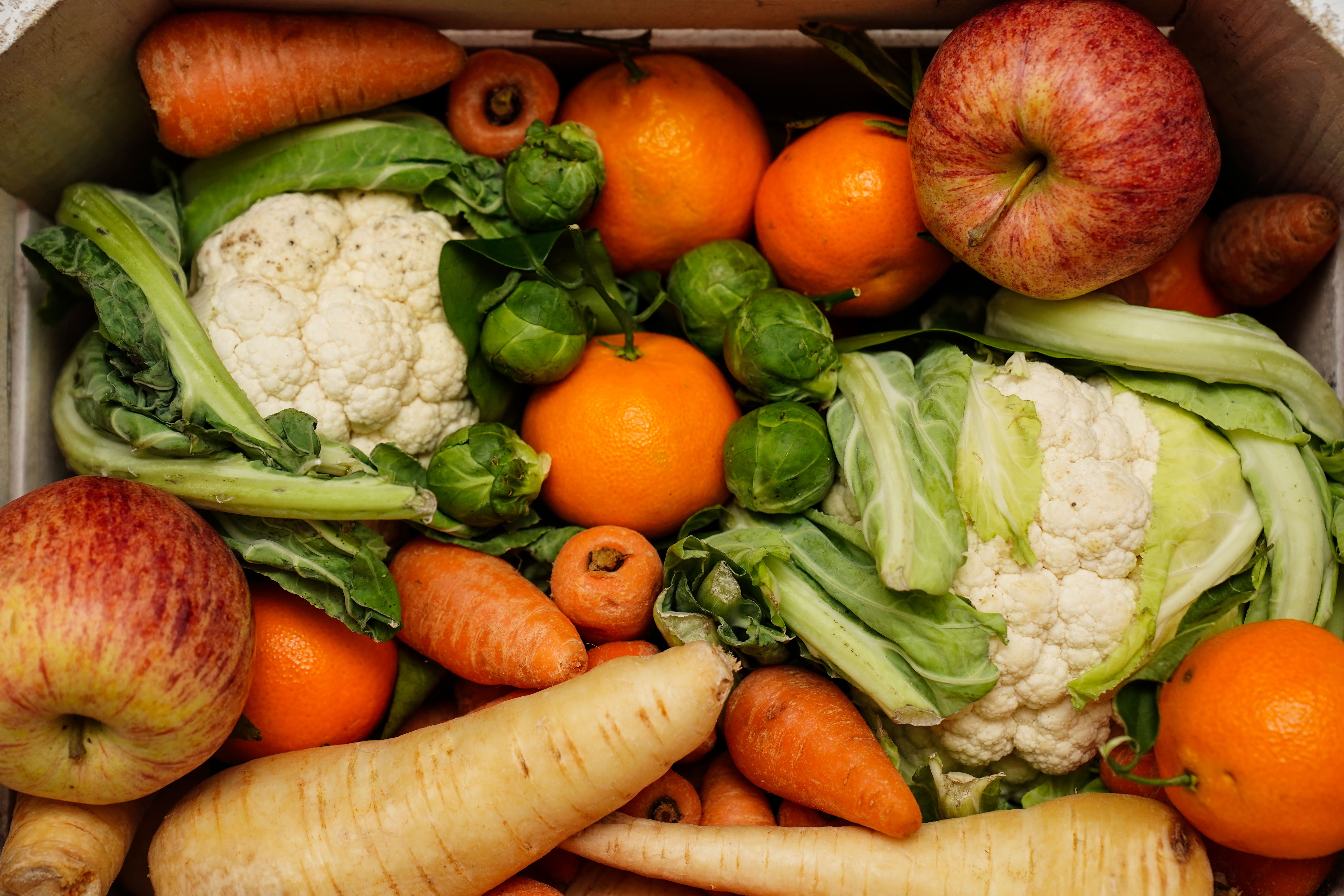The best diet to fight cancer – according to real science (not ‘woo’)
Cancer rates in the West are rising all the time and many believe it is down to our fondness for ultra-processed food, as well as too much alcohol and red meat – things the King, who has just announced his own diagnosis, is generally known to avoid. But with so much conflicting information out there, what advice should we be listening to? Maria Lally sifts the evidence for facts


On Sunday 4 February, King Charles was photographed waving happily to onlookers on his way to church on the Sandringham estate, the first time he had been seen since treatment for an enlarged prostate.
It seems ironic now that Sunday was also World Cancer Day, given that the following day Buckingham Palace made the shock announcement that the 75-year-old King has cancer. Messages from world leaders flooded in, Prince Harry flew from LA to London to be by his father’s side, and well-wishers gathered outside Buckingham Palace.
Up until this year, the King has enjoyed fairly good health, save for two bouts of Covid. In Prince Harry’s memoir, Spare, he revealed that his father does daily headstands to offset neck and back pain resulting from years of playing polo. And while the then Prince of Wales told an interviewer in 2020 that keeping his weight steady in his 70s was a “never-ending battle”, in the same year Camilla told an interviewer, “He is probably the fittest man I know… He’ll walk and walk and walk. He’s like a mountain goat.”
He has also been an advocate of organic food since the 1980s, founding organic food brand Duchy Originals in 1990, and in 2021 he told an interviewer he sticks to a mostly plant-based diet and eats meat no more than twice a week.
The link between cancer and nutrition has become much researched and debated in recent years. Data from the World Cancer Research Fund found that of the 387,000 people diagnosed with cancer in the UK between 2019 and 2020, 40 per cent of those cases could have been prevented with lifestyle changes.
“There is no question that diet and nutrition play a huge role in cancer,” says Timothy Rebbeck, a professor at Harvard University and the Dana-Farber Cancer Institute.
However, he says it’s not entirely straightforward: “We’re all unique and have different susceptibilities, due to genetics or biology, that determine our cancer risk.
“This is why some people benefit from what I call the ‘Winston Churchill effect’, and can drink and smoke their whole lives, and still get to 90, and feel fine. We all know somebody like that. And yet we all know somebody who lives a healthy life, never smokes, maintains a healthy weight, exercises, and yet gets cancer young.”
Rebbeck also says that there are some cancers for which diet and nutrition play a very limited role. “For example, prostate cancer doesn’t seem to be very strongly influenced by diet or nutrition.” Exercise, however, does, with researchers from the Swedish School of Sport and Health Sciences in Stockholm recently finding that men can reduce their risk by as much as 35 per cent by upping their cardiovascular activity by as little as 3 per cent.
However, while prostate cancer probably isn’t affected by diet, Rebbeck says that colorectal cancer, sometimes called colon cancer, is “very strongly influenced” by what we eat.
In what way? “It varies from cancer to cancer, but we’re landing on a few key principles,” he says. “We know processed foods, and ultra-processed foods (UPFs), are not very good for us, in terms of cancer. These are classed as anything with more than three ingredients, foods that don’t look anything like what they started off as, things your grandma wouldn’t recognise. These foods seem to be causing a lot of trouble, in terms of cancer.”

Indeed, a February 2023 study from Imperial College London found that high consumption of ultra-processed foods may lead to an increased risk of developing 34 different types of cancer, specifically brain, breast, and ovarian, and of dying from them. The researchers found that for every 10 per cent increase in these foods there was a 2 per cent increase in overall cancer incidence, even adjusting for socio-economic status and factors like smoking and weight.
Rebecck says this is largely due to the processing methods of these foods, which are often cheap and include things like fizzy drinks, long-life baked goods, and ready meals, and because of the high levels of fat, salt, sugar, and additives that they contain.
“And it’s not what anybody wants to hear, but alcohol is also very strongly associated with cancer,” says Rebbeck. According to Cancer Research, alcohol can be a causing factor in seven different types of cancer (breast, bowel, mouth, three types of throat, and liver), and in January 2023 the World Health Organisation (WHO) stated that there is no safe level.
“It’s a class one carcinogen,” says Rebbeck. “We used to think small amounts were OK, but now we don’t think that. There’s still some debate around the cardiovascular benefits, however, so if your cancer risk is low but your cardiovascular disease risk is high, is having the occasional glass of red wine OK? You have to weigh that risk.”
Alcohol is particularly problematic for certain cancers among certain groups, he says. Binge drinking in young women is “very clearly” linked to breast cancer risk in later years, due to what he calls the “chemical downstream reactions” that drink causes. “The way it’s metabolised causes all sorts of trouble. It’s converted to chemicals like aldehydes, which cause mutations in the DNA and can lead to breast tissue damage. It affects other tissues too, but particularly breast tissue. Meanwhile, chronic high-level drinking is associated with throat cancer.”
Meat consumption has also been linked to cancer risk, particularly bowel. In 2019 researchers found that even moderate amounts of red and processed meat can increase your risk of bowel cancer, and the NHS currently advises those who eat more than 90g per day cut down to no more than 70g.
Nobody talks about the reality that cancer patients can fall at the first hurdle because they’re not getting enough nourishment
Rebbeck says meat that’s ultra-processed, preserved or charred, is particularly bad for cancer risk. “That’s not to say you need to be vegan or vegetarian, but we know that a largely plant-based diet is better for us in terms of cancer risk, and nuts, beans, and legumes can provide you with protein.”
Lastly, watch your weight. The World Cancer Research Fund International states that maintaining a healthy weight throughout your adult life is one of the best ways to prevent cancer. And there’s evidence that shows being overweight can increase your risk of several cancers, including liver, breast, kidney and oesophagus.
“Being overweight increases cancer risk, so lowering your obesity risk will decrease inflammation and DNA damage,” agrees Rebbeck. “One new thing is that drugs like Ozempic, which cause you to lose huge amounts of weight with relative ease, could revolutionise the way we think about cancer. That could be on the horizon.”
Until then, however, he says the way he thinks about his diet is to eat little, mostly plants that have come out of the ground or from a tree, and to limit portion size. Fasting can help with this because, as a consequence, you are limiting the amounts of food you are consuming in one time frame. Exercise also helps, especially in preventing recurrence. A 2021 study found the risk was 63 per cent in breast cancer survivors who exercised regularly, while a 2023 study found twice-weekly yoga can reduce the risk.
However, while lifestyle factors have undoubtedly been proven to help, as the “Winston Churchill effect” shows, it’s complicated: “Health misinformation is all over the place,” says Rebbeck. Worryingly, a 2023 study found that millions of women now turn to platforms like TikTok for health advice following a cancer diagnosis, but the majority of that information is misleading or inaccurate, found researchers from Ohio State University
“There are some things on social media that are complete misinformation. And then there are other things that have some basic truth to them, but the benefits have been misinterpreted or overstated.” He says an extreme example of this would be somebody replacing chemotherapy with herbal tea or green juices. “That’s dangerous. There’s nothing wrong with green juice, or herbal tea, but it’s not going to cure your cancer.”

Rather, he says if you are going through cancer treatment, or recovering from it, it’s far more helpful to speak to a nutritionist or dietitian, “because you may have little to no appetite, or may need to gain weight.”
“This is a very much underreported area,” says nutritionist Jane Clarke. “Nobody talks about the reality that cancer patients can fall at the first hurdle because they’re not getting enough nourishment. This is because they might experience appetite and flavour changes, or a sore mouth.
“Cancer treatment also attacks rapidly dividing cells, which is what we want it to do, but our gut has lots of rapidly dividing cells so treatment can affect the bowel, causing sickness, loss of appetite, or loss of goodness from the foods you are able to eat. Cancer treatments are very effective, but their effectiveness doesn’t always help our body get the goodness we need from food. The shock of a diagnosis can also affect appetite.”
Jane helps many patients with cancer, offering tips like stirring a little double cream into fresh homemade soup, for “lovely, soothing, easy-to-swallow calories.” She also advises they avoid junk food and sugar, which can disrupt the gut’s microbiome at a time it’s already under pressure.
Ryan Riley, meanwhile, set up Life Kitchen, which he founded with chef Kimberly Duke. Ryan and Kimberly, who have both lost parents to cancer, started Life Kitchen, which offers a series of free cookery classes and events for people living with cancer. “Our class’s objectives aren’t necessarily about nutrition, but also the flavour and enjoyment of food,” says Ryan. “It came about through my own mother’s death, when I was 20, and the last thing in her life was the inability to enjoy food.
“Many forms of chemo or radiotherapy can have a devastating effect of dulling or distorting your sense of taste, as well as causing sickness or nausea. Eating during cancer can be difficult because many people just need to get food inside them to fuel their body during and after treatment.
“You may also find you crave certain things, which for my mum was ice pops, because the sugary hit gave her a moment of pleasure during a difficult time. And as you recover, eating a variety of flavourful food can often be one of life’s little wins. But all that really matters is you get food inside you.”
Rebbeck agrees: “And one thing that’s also worth noting is that a lot of the things you can do to prevent your cancer risk in the first place can also be really helpful for post-diagnosis, or post-treatment.”
‘Small Pleasures: Joyful Recipes for Difficult Times’ by Ryan Riley is out now
Join our commenting forum
Join thought-provoking conversations, follow other Independent readers and see their replies
Comments

Bookmark popover
Removed from bookmarks